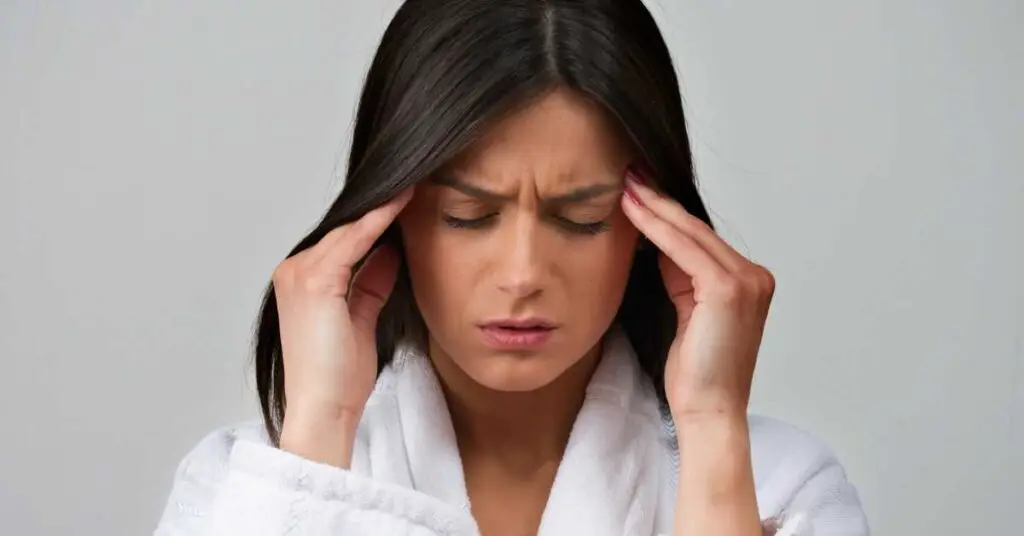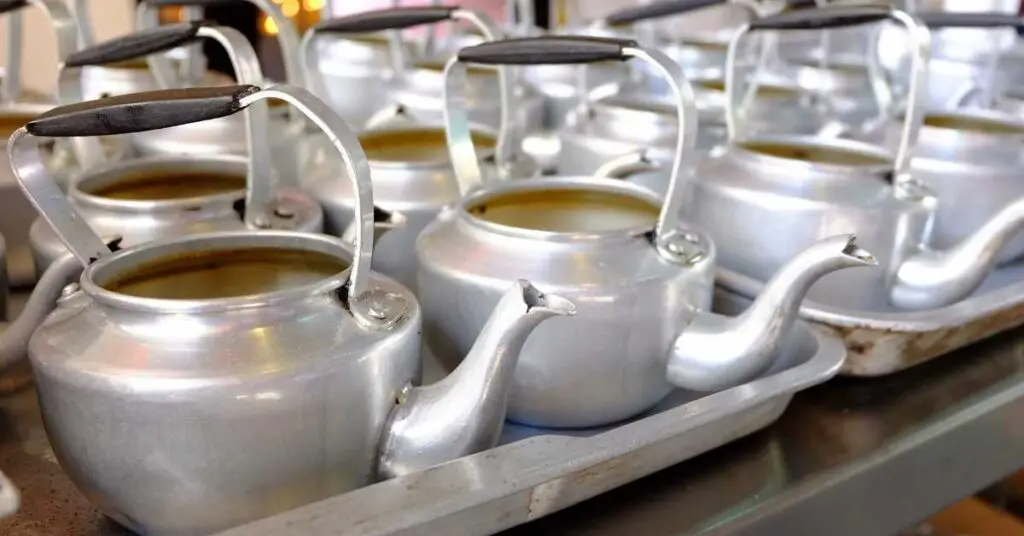black tea is a type of tea that is made from Camellia sinensis leaves that have undergone extensive oxidation. The oxidation process gives the leaves their dark color and distinctive flavor. Black tea is the most popular type of tea in the world, and it can be enjoyed on its own or with milk and sugar. Although black tea originated in China, it is now consumed in countries all over the world. In addition to its delicious taste, black tea has many health benefits. Studies have shown that black tea can help to lower cholesterol levels, reduce the risk of heart disease, and boost cognitive function. So whether you’re looking for a delicious beverage or a healthy way to improve your overall health, black tea is a great choice.
While black tea is generally safe to consume, it can cause headaches in some people. Caffeine is a known trigger for headaches, and black tea contains high levels of caffeine. In addition, tannins present in black tea can also lead to headaches. Tannins are a type of natural compound that can cause constriction of blood vessels, leading to headaches. If you find that black tea is causing you headaches, try switching to a decaffeinated variety or herbal tea. You may also want to cut back on other sources of caffeine, such as coffee, energy drinks, and chocolate.
Cause of headaches for black tea drinkers?
Caffeine and tannins are the two main culprits when it comes to black tea causing headaches.
Caffeine is a known trigger for headaches, and black tea contains high levels of caffeine. In addition, tannins present in black tea can also lead to headaches. Tannins are a type of natural compound that can cause constriction of blood vessels, leading to headaches.
If you drink black tea and often experience headaches, it may be helpful to switch to a different type of tea or cut back on your intake of black tea.
The effects of caffeine on headaches
Caffeine is a stimulant that affects the central nervous system. Caffeine can make headaches worse by constricting blood vessels and increasing inflammation. In addition, caffeine can lead to dehydration, which can also trigger headaches. Although caffeine is often used as a pain reliever, it is important to be aware of its potential side effects. When consumed in excess, caffeine can cause jitteriness, anxiety, and difficulty sleeping. These side effects can aggravate headaches or even cause new ones. If you regularly suffer from headaches, it may be best to limit your intake of caffeine.
How much caffeine does black tea contain?
Depending on the serving size, black tea can contain anywhere from 25 to 48 mg of caffeine. That’s about the same amount of caffeine as a cup of green tea, but less than half the amount found in a typical cup of coffee. Black tea is also lower in caffeine than some other types of tea, such as matcha and pu-erh. However, the exact amount of caffeine in black tea can vary depending on a number of factors, including the type of tea, the brewing method, and how long the leaves are allowed to steep. So if you’re looking for a caffeinated beverage, black tea is a good choice. But if you’re sensitive to caffeine, it’s best to stick with decaf or herbal teas.
The effects of tannins on headaches
Tannins are a type of natural compound found in black tea. Tannins can cause constriction of blood vessels, leading to headaches. Although the exact mechanism is not fully understood, it is thought that tannins bind to proteins in the body, which leads to the blood vessels constricting. This can cause headaches and other symptoms such as dizziness and nausea. Tannins are also known to increase stomach acid production, which can contribute to stomach upset.
If you regularly suffer from headaches, it may be worth avoiding black tea or limiting your intake. There are many other types of tea available that do not contain tannins, so you can still enjoy a delicious cup of tea without the risk of headaches.
How much black tea is safe to drink?
According to the Mayo Clinic, most healthy adults can safely consume up to 400 milligrams of caffeine per day. This translates to around four cups of black tea.
While there are potential health benefits associated with black tea consumption, it is important to keep in mind that too much caffeine can cause side effects such as anxiety, insomnia, and irritability. Additionally, pregnant women and people with heart conditions should limit their caffeine intake. Therefore, it is important to speak with a healthcare provider before increasing black tea consumption. When consumed in moderation, however, black tea can be part of a healthy diet.
How can you prevent headaches from black tea consumption or other activities?
Headaches are a common problem, and there are many different potential triggers. One potential trigger is black tea. Black tea contains caffeine, which can lead to headaches in some people. If you find that black tea is triggering your headaches, there are a few things you can do to prevent them.
First, try switching to decaffeinated black tea or herbal tea. You may also want to cut back on other sources of caffeine, such as coffee, energy drinks, and chocolate.
It’s also important to stay hydrated, so drink plenty of water throughout the day.
Finally, limit your intake of black tea to no more than 3 cups per day.
If you are engaging in an activity that is known to trigger headaches, such as staring at a computer screen for long periods of time, take breaks often and make sure to blink regularly.
By taking these precautions, you can help prevent headaches from black tea consumption or other activities.
Alternatives to black tea for those who suffer from headaches
If you find that black tea is causing you headaches, there are many other types of tea available that may be more suitable for you.
Herbal teas, such as chamomile and lavender, are caffeine-free and can be very calming. Green tea is a good alternative to black tea as it contains less caffeine. White tea is also a good option, as it has even less caffeine than green tea. If you still want to enjoy the flavor of black tea without the caffeine, try decaffeinated varieties or blends that contain only small amounts of caffeine.
When to see a doctor about headaches?
Most headaches are not cause for concern and can be treated at home with over-the-counter medication and home remedies. However, if you suffer from frequent or severe headaches, it is important to see your doctor to rule out any underlying medical conditions. If headaches are interfering with your daily life or causing you significant distress, speak to your doctor about possible treatment options.
Your doctor may recommend lifestyle changes, such as getting more sleep or exercising regularly, or they may prescribe medication to help relieve your symptoms. In some cases, headaches may be caused by a more serious condition, such as a brain tumor or stroke, so it is important to seek medical attention if you experience sudden or severe headache pain.
Conclusion
Some people suffer headaches after drinking black tea, which is due to the presence of tannins and caffeine. If black tea is making your headaches worse, there are a few things you can do to alleviate them. You might also want to try decaffeinated black tea or herbal tea as an alternative. If headaches are preventing you from leading a normal life or causing you significant discomfort, see your doctor about treatment alternatives.












